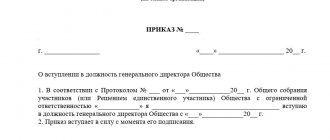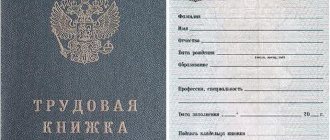What is a collective agreement
Any labor relationship must be regulated. This protects the employer and employees. All the nuances of the work are discussed and included in a special regulatory legal act, which is a collective agreement. It regulates the relationship between all employees at once, and not separately one-on-one with each, as an employment contract does. Cooperation of this kind provides more advantages for the organization of working conditions for both parties.
In what cases is
Both cooperating parties have the right to demand the conclusion of a collective agreement, but there is no mandatory regulation on this in the code established by federal legislation. If one of the parties makes such a proposal, then the second must enter into collective negotiations without fail. Reasons that may contribute to the drafting of a normative act may be the following:
- Strengthening motivation and ensuring interest. The employer can enter into the document information about monetary compensation, additional payments, remuneration and the reasons contributing to them.
- Payment regulation. This is relevant under conditions of constant rising prices and inflation.
- Difficult working conditions. The contract may discuss improved conditions, health protection, safety, and medical insurance.
- The initiative of the employer if they want to earn the image of a reliable and progressive company, since the act largely protects employees and cannot contribute to the deterioration of working conditions.
- The company's desire to provide a stable climate at work. Local regulations protect against strikes and other production disruptions.
- The desire to reduce the amount of documentation, since the contract is concluded between the boss and all subordinates at once.
What relations in the organization are regulated by a collective agreement?
This act, which regulates labor and social relations between the employer and subordinates, is a mutually beneficial partnership. It announces the main criteria for compliance with the working and living conditions of workers. At the same time, they themselves take an active part in developing these conditions. This legal document should not contain provisions on any restrictions on the rights or reduction of workers’ guarantees that are established by labor legislation.
By the way
| Guarantees and compensation for persons participating in collective bargaining Persons participating in collective negotiations and the preparation of a draft collective agreement are released from their main work while maintaining their average earnings for a period determined by agreement of the parties, but not more than three months. All costs associated with participation in collective negotiations are compensated in the manner established by labor legislation and other regulatory legal acts containing labor law standards, a collective agreement, and an agreement. Payment for the services of experts, specialists and intermediaries is made by the inviting party, unless otherwise provided by the collective agreement or agreement. Representatives of workers participating in collective negotiations, during the period of their conduct, cannot, without the prior consent of the body that authorized them for representation, be subject to disciplinary action, transferred to another job or dismissed at the initiative of the employer, with the exception of cases of termination of the employment contract for committing an offense, for which, in accordance with the Labor Code of the Russian Federation and other federal laws, provides for dismissal from work. |
Representatives of a party who have received a proposal in writing to begin collective bargaining are required to enter into negotiations within seven calendar days from the date of receipt of the proposal by sending a written response to the initiator of collective bargaining indicating representatives from their side to participate in the work of the collective bargaining commission and their powers.
Stage 2. Formation of a collective bargaining commission
In accordance with Art. 35 of the Labor Code of the Russian Federation, a commission is created in the organization to conduct collective negotiations, prepare a draft collective agreement and conclude it. This commission includes representatives of employees and employers on an equal basis.
The employer issues an order indicating the persons who will represent its interests in the collective bargaining commission.
Stage 3. Conducting collective bargaining
Note! The start date of collective negotiations is the day following the day the initiator of collective negotiations receives a written response
Representatives of the parties participating in collective negotiations are free to choose issues related to the regulation of social and labor relations.
The timing, place and procedure for holding collective negotiations are determined by representatives of the parties participating in the negotiations.
The parties must provide each other no later than two weeks from the date of receipt of the relevant request with the information they have necessary for conducting collective bargaining.
Participants in collective bargaining and other persons associated with collective bargaining must not disclose information received if this information relates to a secret protected by law (state, official, commercial or other). Persons who disclosed the specified information are subject to disciplinary, administrative, civil, and criminal liability in the manner established by the Labor Code of the Russian Federation and other federal laws.
Stage 4. Resolution of disagreements
If during collective negotiations no agreed decision is made on all or individual issues, then a protocol of disagreements is drawn up. The settlement of disagreements that arose during collective negotiations on the conclusion or amendment of a collective agreement is carried out in the manner established by the Labor Code of the Russian Federation.
Collective negotiations have been going on in our organization for two months now, but the draft collective agreement still does not suit any of the parties. How long can disagreements be resolved?
If agreement is not reached between the parties on certain provisions of the draft collective agreement within three months from the date of the start of negotiations, the parties will be required to sign a collective agreement on the agreed terms and simultaneously draw up a protocol of disagreements.
Unsettled disagreements may be the subject of further collective negotiations or resolved in accordance with the Labor Code of the Russian Federation and other federal laws.
Stage 5. Conclusion of a collective agreement
A collective agreement is concluded by representatives of the parties participating in collective bargaining in accordance with their powers. In addition, a collective agreement can be adopted at a general meeting (conference) of employees of an organization or an individual entrepreneur.
Legal regulation
All points on the definition of the concept of a collective agreement, the procedure for development, conclusion, amendment, and so on are regulated taking into account the norms of the Labor Code of the Russian Federation (LC RF):
- definition - art. (Article) 40 Labor Code;
- extension of action - Art. 43 TK;
- content, structure - Art. 41 TK;
- change, addition - Art. 37 TK;
- registration - art. 50 TK.
Labor law regulates relations according to
Question: The organization’s collective agreement provided that the employer has the right to reduce the duration of annual basic leave for employees who show up at the workplace in a state of alcoholic intoxication and are consequently suspended from work. Lawyer's Answer: These conditions contradict the Labor Code.
https://youtu.be/eVt0S-G6iw0
Labor matters are regulated, incl. and a collective contract. But the terms of the collective contract cannot aggravate the employee’s position in comparison with current legislation. And in this case, such a deterioration is obvious, because
provision is made for a random reduction by the employer of the duration of annual basic leave for a certain category of employees, despite the fact that the current labor legislation provides for other disciplinary sanctions against employees.
appearing at the workplace in a state of intoxication, including dismissal from work at the initiative of the employer.
If I were you, I would file a complaint with the municipal labor inspectorate with a request to check the terms of the collective contract for compliance with the law and submit a proposal to eliminate violations and bring the text of the collective agreement in accordance with current labor legislation. Good luck.
Can labor relations be regulated by a collective agreement?
Question: The organization’s collective agreement provided that the employer has the right to reduce the duration of annual basic leave for employees who show up at the workplace in a state of alcoholic intoxication and are consequently suspended from work.
Lawyers answer the question: - labor law regulates relations according to
A collective contract is an integral part of labor relations. The question is different - the legality of including such criteria in the collective agreement. Their inclusion is unlawful. since they contradict the requirements of the Labor Code of the Russian Federation, Article 8. The grounds for the emergence of labor relations are reflected in Article 18 of the Labor Code of the Russian Federation. There is no collective agreement in this list
Contents of the collective agreement
The collective agreement is intended to help organize the activities of the institution or individual branches. To do this, the rights and obligations of employees and managers are discussed there, which are feasible for both parties to fulfill, which include regulations. These include:
- wages, forms, sizes, payment systems;
- benefits and compensation;
- release, retraining, employment;
- work/rest time;
- labor protection, working conditions, environmental safety;
- guarantees for training employees for whom benefits are established;
- payment for food;
- rest, recovery;
- control over the act itself.
- How to disable paid services on Megafon yourself through your personal account online, via SMS and ussd request
- What is a hair roller and how to use it
- Symptoms of arterial bleeding
Document structure
How the act will be drawn up is decided by both parties after a joint discussion. There are 3 main points of the standard scheme, which can be downloaded from many sites. The structure of the negotiation document is determined by the parties individually. These will be:
- Introductory part. It contains the main directions in which the organization operates and develops.
- Rights/responsibilities of the employer.
- Rights/responsibilities of employees and bodies that represent them.
Required details
The deed must contain accurate information about the parties who enter into it. The layouts of the collective agreement are the same. The list of details provides the following information:
- full names of representatives of both parties responsible for concluding the agreement;
- information about their documents;
- place/date of conclusion of the act;
- content;
- rights and obligations of the parties;
- validity period of the act.
Parties to the collective agreement
There are two parties involved in the conclusion of this document: the employer and employees of the organization or its separate representative office. Employees do not act as individuals, but are an independent entity, that is, an individual work collective with an elected representative. The representative can be selected from both employees and primary trade union organizations. The employer is obliged to respond to the proposals of the team himself or to select an authorized person to do so who will act on his behalf.
Rights and obligations
Labor relations are regulated by Russian legislation in accordance with Art. 21 and 22 TK. They can be supplemented by any conditions voluntarily through a collective agreement, but must comply with basic legal norms. The main thing is that the rights provided for by the labor code are not underestimated. The parties have the right to include in the document only those items that they can fulfill.
Terms of agreement
All the conditions that will be included in the document cannot worsen the situation of the people who signed the collective agreement. Otherwise, the act will be declared invalid. This will identify the local labor authority where the document should be sent once signed by both parties. If no violations are identified, then all terms of the agreement will remain in effect for the entire time for which the document was concluded.
Difference between collective and individual
What is the difference between an individual employment contract and a collective one? The main difference between individual and collective labor agreements lies in the parties to these two documents.
The common party in both the first and the other agreement is the employer represented by his representative.
Second side:
- individual employee - for an individual contract;
- all employees of the organization (usually represented by a trade union committee) - for a collective agreement.
Depending on who is the other party, the content of the document :
- an individual employment contract specifies the rights and obligations of a particular employee, his position, the procedure for remuneration, etc.;
- The collective agreement contains provisions common to all employees - the duration of vacations, the availability of additional payments for certain merits, additional payments for special working conditions, etc.
In labor law, a collective agreement (if any) has a predominant role in resolving disputes between an employee and an employer. It better protects the rights of workers and is an additional guarantee in compliance with legal requirements.
Effect of the collective agreement
Depending on the circumstances in which the organization finds itself, between the employer and the employees of which the agreement is concluded, it may change the duration of its validity, terminate earlier than the agreed time, or be extended. Among the circumstances that lead to the early termination of the agreement are: a change in the form of ownership, reorganization of the enterprise or liquidation.
- Printing MTS calls - how to do it. How to get details of MTS calls in your personal account or via SMS
- Cough without fever
- How to gain followers on Instagram without cheating. How to increase the number of live subscribers for free
When changing the form of ownership
There are often cases when an organization needs transformation, which leads to the transfer of authority to another organization. If the latter has a different organizational and legal form of ownership, then the former takes it over and then ceases to exist. All its rights and obligations are transferred to the new organization. In such conditions, the agreement extends to the next three months from the moment the organization’s rights are fully transferred.
During reorganization
In many cases, a reorganization of the enterprise may be necessary. If it is not profitable or, on the contrary, more serious goals have appeared. In this case, management may announce the completion of activities and form one or more new enterprises from the old one. No matter how the reorganization proceeds and no matter what it leads to, the agreement remains in effect throughout this entire process.
Upon liquidation of an organization
Liquidation is a procedure after which any organization completely ceases to operate. All its obligations to employees or creditors come to an end. Its affairs cannot pass to other persons or enterprises in the order of succession. As a result, a previously concluded collective agreement cannot be extended or amended. It will be valid only during the liquidation procedure, after which the employment obligations are terminated.
How is a collective agreement put into effect?
Good day everyone. Lawyer Evgeniy Volkov is in touch
In this short article I will answer the question: how is a collective agreement put into effect?
You will find out from what moment the collective agreement comes into force.
Despite the fact that the legislator has regulated this issue very clearly in the Labor Code of the Russian Federation, nevertheless, many enterprises are still “reinventing the wheel” and think that this is the right thing to do.
In addition, I will consider the validity of the collective agreement over time, and also tell you about the grounds for termination of the collective agreement.
From what moment does the collective agreement come into force?
So, at some enterprises there is an opinion that the collective agreement begins to operate from the moment the corresponding order is issued.
Typically, this is how collective bargaining agreements are enforced in various federal agencies. The contents of the order, for example, indicate
In accordance with the decision of the Conference blah blah blah,
I order:
1. Put the new edition of the Collective Agreement into effect. 2. Cancel the previous edition. 3. Blah blah blah.
4. I reserve control over the execution of the order.
Head of the enterprise —— Signature
Do you need to do the same - issue an order to put a collective agreement into effect, familiarize employees with it, etc.?
To understand and understand for yourself how a collective agreement is put into effect, it is enough to open Article 43 of the Labor Code of the Russian Federation. It says there
That is, we see that the current labor legislation does not require the issuance of any local regulations (orders, instructions) in order for the collective agreement to take effect.
Signatures of representatives of the parties or the date established by the collective agreement as the date of entry into force of the collective agreement are sufficient.
Validity of the collective agreement over time
The validity of the collective agreement in time is enshrined in Article 12 of the Labor Code of the Russian Federation
Here, some enlightened heads can argue with me that this article of the Labor Code of the Russian Federation does not determine the validity of the collective agreement in time, because the collective agreement is supposedly neither a local normative act nor any other normative legal act.
The following arguments are usually given to support this position. According to Part 1 of Article 40 of the Labor Code of the Russian Federation
That is, the legislator seemed to clearly call the collective agreement a legal act (not a local normative one, and not a normative one).
The collective agreement itself has a contractual nature and, in essence, represents an agreement between the parties to the social partnership.
Any local regulations are issued by the employer, that is, they have an authoritative and administrative nature; when issuing local regulations, the opinion of the representative body of employees is taken into account.
What is the point of additionally taking into account the opinion of the representative body of workers if the collective agreement in any case must be handed over to this party for signature?
These simple arguments still exist in the minds of many who are seriously interested in labor law.
Well, let me show you why this line of thinking is fundamentally wrong. Look. Let's start with Article 5 of the Labor Code of the Russian Federation.
Pay attention to the title of this article - “Labor legislation and other acts containing labor law norms.”
That is, this article directly relates the collective agreement to other acts containing labor law norms.
That is why, to answer the question about the validity of the collective agreement over time, it is necessary to look at Art. 12 of the Labor Code.
That is, within the meaning of the Labor Code of the Russian Federation, it is not just a legal act (as follows directly from the definition given in Article 40 of the Labor Code of the Russian Federation), but a normative legal act.
And as we have now found out, the validity of a collective agreement in time is determined directly by the parties to the collective agreement in accordance with Article 12 of the Labor Code of the Russian Federation.
The collective agreement continues to be valid for the entire period for which it was concluded.
The procedure for changing the collective labor agreement
Since two parties are needed to conclude a collective agreement, changes are also possible only after agreement with each other. It should happen in the following order:
- An interested party, such as a team, can send a free-form written proposal to the employer to begin negotiations. It must be accompanied by a draft amendment.
- The second party must respond to it within 7 calendar days with written consent.
- The day after the initiator receives the letter, negotiations are considered open and the procedure for developing changes begins.
- Next, a commission is created that carries out the work of the entire process, resolves collective disputes and proposals in accordance with the wishes of the parties.
- Three months are allotted for the procedure for dismantling all proposals, after which the agreement comes into force if it is accepted and approved.
- After signing, the document is sent to the relevant authority for registration. This will provide additional guarantees of compliance with the law.
collective labor relations
of course, see the Law “on collective agreements and agreements” and Art.
10-20 Chapter 2 KZPT Pashka, your inquisitive head, look and “you will understand everything and see everything for yourself” Labor Code of the Russian Federation
no, of course, only an Employment Agreement) KolDog can regulate labor relations, they can provide additional guarantees to employees, supplement the Labor Code, but not contradict it and not infringe on the rights of employees.
Can labor relations be regulated by a Collective Agreement?
I think they can, but for this you need team unity, not selfish interest
What type of acts does a collective labor agreement belong to?
A collective agreement is an agreement that establishes additional guarantees for employees and reciprocal obligations on their part in relation to the administration of the company. This document increases legal and social guarantees for personnel compared to those already established by labor legislation (Article 40 of the Labor Code of the Russian Federation)
local regulatory act
There is no collective labor agreement. In labor law there is a “collective agreement” and an “employment contract”.
The very name “collective agreement” indicates that it refers to a contract (agreement) - a legal act regulating social and labor relations in an organization or an individual entrepreneur and concluded by employees and the employer represented by their representatives. Cm.
Articles 40, 54 of the Labor Code of the Russian Federation and Art. 420 of the Civil Code of the Russian Federation. A collective agreement is not a local regulatory act. For local regulations, see Art. 8 Labor Code of the Russian Federation.
You probably meant “Collective agreement” - this is a local act.
Can labor relations be regulated by a collective agreement? (see inside) The organization's collective agreement provided that the employer has the right to reduce the duration of the annual basic leave for employees who appear at the workplace in a state of alcoholic intoxication and are consequently suspended from work. Can labor relations be regulated by a collective agreement? Is it possible to include in collective agreements conditions that reduce the level of rights and guarantees of workers established by the Labor Code?
Is a collective agreement the basis for the emergence of labor relations?
They should be regulated only by them and in no case should they reduce the rights and grants of workers
provisions of local acts contrary to labor legislation are void.
Article 9 of the Labor Code of the Russian Federation.
Regulation of labor relations and other relations directly related to them in a contractual manner In accordance with labor legislation, the regulation of labor relations and other relations directly related to them can be carried out by concluding, amending, supplementing collective agreements, agreements, and employment contracts by employees and employers.
Collective agreements, agreements, and employment contracts cannot contain conditions that limit the rights or reduce the level of guarantees of employees in comparison with those established by labor legislation and other regulatory legal acts containing labor law norms.
If such conditions are included in a collective agreement, agreement or employment contract, then they are not subject to application. Article 16 of the Labor Code of the Russian Federation. Grounds for the emergence of labor relations Labor relations arise between an employee and an employer on the basis of an employment contract concluded by them in accordance with this Code.
In cases and in the manner established by labor legislation and other regulatory legal acts containing labor law norms, or the charter (regulations) of an organization, labor relations arise on the basis of an employment contract as a result of: election to a position; election by competition to fill the relevant position; appointment to a position or confirmation in a position; assignments to work by bodies authorized in accordance with federal law against the established quota; court decision on concluding an employment contract; Labor relations between an employee and an employer also arise on the basis of the employee’s actual admission to work with the knowledge or on behalf of the employer or his representative in the case where the employment contract was not properly drawn up. Learning is light! And reading is the main way to gain knowledge!))))))))))))))))))))
A collective agreement can only improve, and not worsen, the situation of workers, and the example you give suggests that it was drawn up illiterately and this provision has no legal force.
This is contrary to the Labor Code if the vacation is less than that stipulated in the Labor Code. Infringement of the rights provided for by the Laws is unacceptable!
Can labor relations be regulated by a collective agreement? and is it possible to include in collective agreements conditions that reduce the level of rights and guarantees established by the Labor Code?
No. A collective labor agreement cannot reduce the level of workers’ rights
https://youtu.be/iTlHJuqwNw8
Labor relations are regulated by a contract and a legal act (for example, in the Russian Federation this is the Labor Code). And a collective agreement is a type of employment contract (one might say so).
The collective agreement regulates the labor relations between the employee and the employer. But: the hierarchy is as follows: 1. Labor Code 2. Collective Agreement 3. Employment Agreement. No agreement can establish conditions worse than those in the Labor Code.
Everything you need to know is contained here: Labor Code of the Russian Federation. Article 9.
Regulation of labor relations and other relations directly related to them in a contractual manner In accordance with labor legislation, the regulation of labor relations and other relations directly related to them can be carried out by concluding, amending, supplementing collective agreements, agreements, and employment contracts by employees and employers.
Collective agreements, agreements, and employment contracts cannot contain conditions that limit the rights or reduce the level of guarantees of employees in comparison with those established by labor legislation and other regulatory legal acts containing labor law norms.
If such conditions are included in a collective agreement, agreement or employment contract, then they are not subject to application.
Administrative liability for violation of the terms of the agreement
In case of violation of the established agreement, there are appropriate measures provided for by law. Failure to fulfill obligations is subject to mandatory punishment. There are the following types of violations and penalties:
| Type of violation | Penalties | Legislative norm |
| Evasion of negotiations, violation of terms of conclusion. | Fine from 1000 to 3000 rubles. | Art. 5.28 Code of Administrative Offenses (Code of Administrative Offences). |
| Avoidance of obligations. | Fine from 3000 to 5000 rubles. | Art. 5.31 Code of Administrative Offences. |
| Concealing information for negotiations. | Disciplinary punishment or a fine from 1000 to 3000 rubles. | Art. 5.29 Code of Administrative Offences. |
| Refusal to enter into a collective agreement without reason. | Fine from 3000 to 5000 rubles. | Art. 5.30 Code of Administrative Offences. |
| Evasion of requirements. Avoidance of participation in conciliation procedures. | Fine from 1000 to 3000 rubles. | Art. 5.32 Code of Administrative Offences. |
What is regulated and how is a collective agreement concluded under the Labor Code of the Russian Federation?
The institution of collective agreement (Article 40 of the Labor Code of the Russian Federation) was created to regulate social and labor relations that arise between the organization’s employees and the employer. It is a local legal act aimed at ensuring effective interaction between the parties to the work process.
A collective agreement is concluded between employees, represented by their representatives, and the employer, represented by his representative or authorized official. It is important that the employees of the organization do not act separately from each other, but as an integral entity - a working team.
Registration of a collective agreement
The collective agreement regulates social and labor relations at the enterprise, but it is not a mandatory document. The employer is not obliged to conclude it with the work team, since the drawing up of the agreement and its entry into legal force is carried out with the consent of both parties.
If the work collective and the employer have decided to conclude a collective agreement, then the latter’s responsibility is to send the document for registration to the Economic Development Department of the locality within 7 days from the date of signing.
It is important that Art. 50 of the Labor Code of the Russian Federation establishes that the registration procedure does not affect the entry into force of a collective agreement. The registration process lasts no more than 10 days. It is free for both parties and is of a notification nature.
Forms for concluding a collective agreement between the parties
The conclusion of a collective agreement between the employer and employees can be carried out at the level of the entire company or individual divisions.
In accordance with current legislation, you can conclude a collective agreement with the employer according to one of the proposed options:
- Signing of one contract, the validity of which applies to the entire workforce of the enterprise.
- Signing of one agreement covering employees of the organization, and separate collective agreements valid in separate divisions.
- Signing the contract only in the company's divisions.
The law does not provide for the possibility of concluding a collective agreement with the workforce only in the central division, since it is not separate.
For details on how to conclude a collective labor agreement, watch the video
Every year, employees and the employer, represented by their representatives, gather at a general meeting to discuss the implementation of the provisions of the collective agreement.
The employer is held liable in the following situations:
- Failure to participate in organized negotiations;
- Violation of the provisions contained in the collective agreement;
- Failure to provide information required for the conclusion and legal validity of a collective agreement.
As for employees, failure to comply with the terms of the employment contract entails moral and political responsibility.
https://youtu.be/MXJVaxwzGzw
The table shows administrative liability for non-compliance with the legislation regulating the procedure for concluding a collective agreement
Code of Administrative Offenses of the Russian FederationAdministrative offenseAmount of administrative fine
| 5.28 | Avoidance of participation in negotiations on concluding, amending or supplementing a collective agreement or violating the terms of negotiations | from 1000 to 3000 thousand rubles |
| 5.29 | Failure to provide information for collective bargaining | from 1000 to 3000 thousand rubles |
| 5.30 | Unreasonable refusal to conclude a collective agreement | from 3000 to 5000 thousand rubles |
| 5.31 | Violation or failure to fulfill the obligations of the collective agreement | from 3000 to 5000 thousand rubles |
Contents of sections of the collective agreement
Clarifying the question of what relationships in an organization are regulated by a collective agreement helps determine its structure. The standard form of the document is not established by the legislator, Art. 41 of the Labor Code of the Russian Federation regulates only a list of issues that can be included in the content.
Sections of the collective agreement concluded in the organization:
Additional Information
There are final provisions in the collective agreement. They contain instructions on the validity period of this agreement, as well as rules for making changes and additions to the collective agreement and resolving disagreements between the parties, their responsibilities, and the procedure for monitoring compliance with the collective agreement (these provisions can be drawn up in a separate section).
- Salary. Regulations on the forms, methods and amounts of remuneration for work, payment regulation schemes taking into account the degree of inflation and price increases, benefits for various groups of employees, working hours and time allocated to employees for rest.
- Providing employment. A regular employment contract provides for the provision by the employer of a conditional labor function; a collective agreement may include the provision of benefits upon release from production, taking advanced training courses or the opportunity to undergo retraining.
- Social services. This section may contain conditions for compensation of transportation costs and subsidies for food at the enterprise. Often information is included on activities carried out to improve occupational safety and health.
- Responsibilities of employees. A provision may be included on the refusal of the work collective to strike if the employer fully complies with the points contained in the collective agreement.
- Required details. Obligations of the employer, validity period of the concluded collective agreement, date and place of its signing.
Despite the fact that the employer is not obliged to conclude a collective agreement, its presence is a factor indicating the stability of the enterprise and creates favorable conditions for attracting new specialists. The main condition is that its provisions should not worsen the position of workers compared to a regular agreement.










